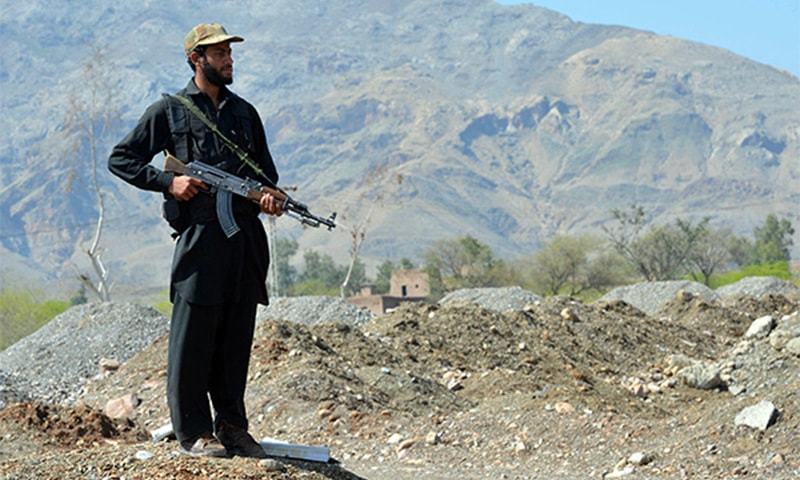PESHAWAR:
The United States Agency for International Development (USAID) is supporting the Khyber-Pakhtunkhwa (K-P) government in expanding governance, improving services delivery, creating economic opportunities and developing infrastructure in the province particularly in recently-merged tribal districts.
This was stated by Acting Director USAID-KP office Altaf Afridi while addressing a virtual seminar in Peshawar on Friday.
Other participants from the USAID team included Mohsin Rose- Agriculture Expert, Waseem Bari- Economic Growth Expert, Jalil-ur-Rehman- Infrastructure expert, Fazal-e-Rabbi-Education expert and Arif Tabbasum-Governance expert, according to an official statement.
Afridi, during his briefing to the press, said that stability and development in K-P, particularly in the merged districts along the border with Afghanistan, are critical to global and regional security.
USAID is partnering with the Pakistanis government to expand the presence of public entities in the newly-merged areas, provide basic services, and facilitate economic opportunities. These jointly prioritised objectives are in line with Pakistan’s Tribal Decade Strategy for 2020-2030 and the mutual goal to increase stability by delivering development to the erstwhile Federally Administered Tribal Areas (FATA).
He added that the successful merger proved helpful in getting access of state institutions to the areas, making developments in the under privileged zone, economic revival, job creation, making better livelihood, reconstruction of infrastructure, women empowerment and convening superior services to the inhabitants.
Also read: 2020 a year of trouble for tribal districts
USAID did plenty of work in Peshawar city, including development of the water sanitation system. The agency supported the construction of 600 km of road network in the Merged Areas of K-P including three major cross-border trade routes that created business opportunities for people.
The busiest of these is the Peshawar-Torkham highway that caters to 16,000 vehicles every day. The USAID in erstwhile FATA was still engaged in building schools devastated in terrorism and floods, constructing other infrastructure and upgrading electricity system. In the area solar panels were being installed for regular water systems, it said.
USAID partners with the Pakistan’s government to provide technical assistance to provincial and district-level governments to improve their capacity to manage and monitor public services.
In addition, USAID works closely with the K-P government on the reconstruction and rehabilitation of public infrastructure that was damaged by prolonged conflict with insurgents, security operations and humanitarian crises in the area. These mutual investments have improved governance metrics through improved public service delivery systems for drinking water and sanitation. Additionally, USAID is working with the K-P government to enable sustainable public services in the newly merged districts by developing a local revenue generation tax collection system.
Finally, USAID supports citizen-to-government dialogue on development priorities in the newly merged districts in order to build trust and increase cooperation between residents and KP government stakeholders, said the communiqué.



